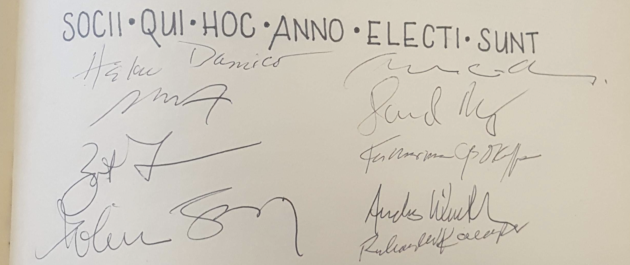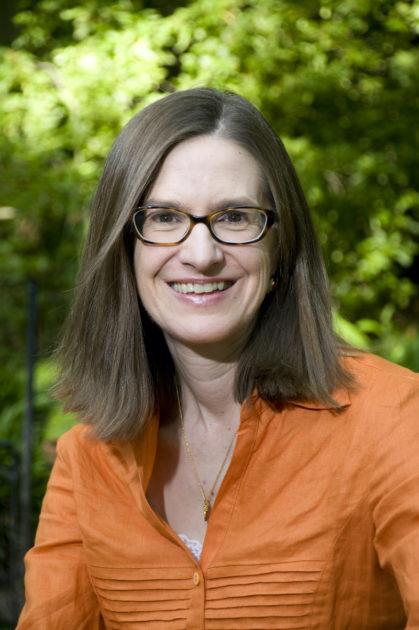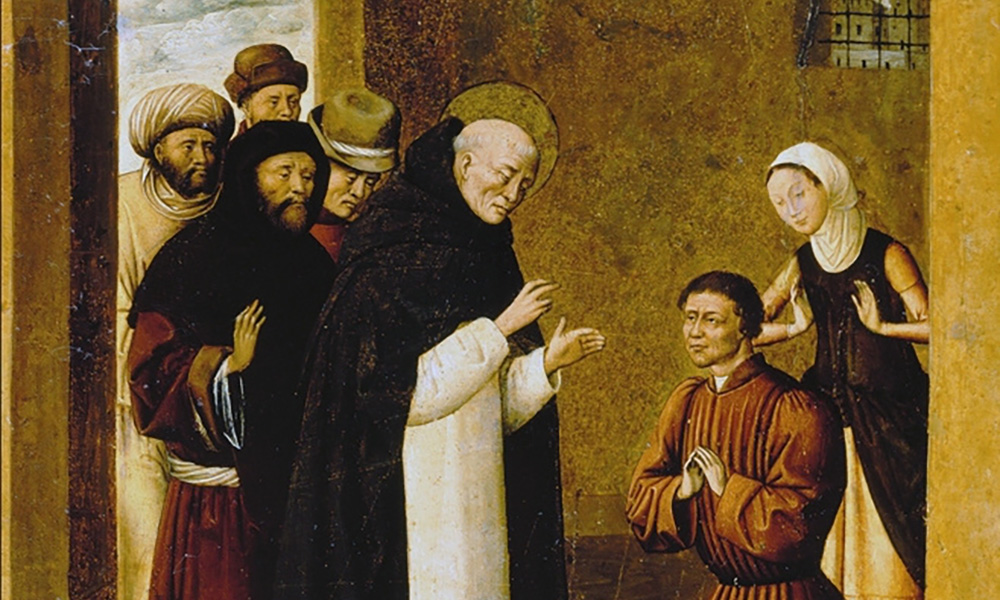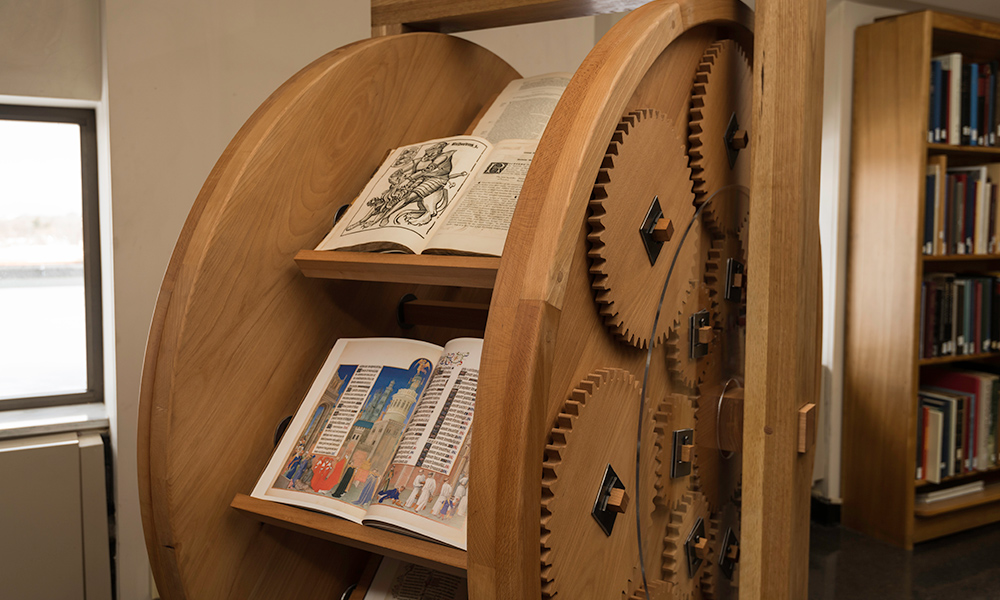The Rochester historian also wins a National Endowment for the Humanities fellowship to write her third book.
Laura Ackerman Smoller, chair of the Department of History at the University of Rochester and a scholar of medieval and Renaissance Europe, is on a roll.
This month she was named a fellow of the Medieval Academy of America, the highest honor the academy bestows on North American medievalists. The same day she learned she’d been named to the academy’s Fellows Class of 2022, she also received official notification for a National Endowment for the Humanities (NEH) fellowship to write her third book. Over the next year, she’ll be freed from her administrative and teaching duties to work on the project, an exploration of the relationship between astrology and prophecy in medieval and Renaissance Europe.
From astrology and apocalypse to saints and miracles
Reacting to her selection as a Medieval Academy fellow, Smoller says she’s “in awe at the pantheon of medievalist scholars whose names are inscribed in the Book of the Fellows.”
Among them is the late John Murdoch, one of her PhD mentors at Harvard University, whose induction she attended in 1994. In March—COVID-19 permitting—she’ll have the chance to add her name to the book at the academy’s induction ceremony in Charlottesville, Virginia.
In a nomination letter, one academy fellow describes Smoller as “one of the most creative and insightful students of the scientific and spiritual imagination ever to enter our profession.”

An expert on the intersection of magic, science, and religion in medieval and Renaissance, the Rochester historian follows two major themes in her research: astrology and apocalyptic prophecy, and saints and miracles.
Her first book, History, Prophecy, and the Stars: The Christian Astrology of Pierre d’Ailly, 1350-1420 (Princeton University Press, 1994), traces a French cardinal’s use of astrology to investigate the time of the world’s supposed end.
Her second book, with the memorably gruesome title The Saint and the Chopped-Up Baby: The Cult of Vincent Ferrer in Medieval and Early Modern Europe (Cornell University Press, 2014), won the 2016 La corónica International Book Award, an annual international prize for the best book on medieval Hispanic languages, literatures, and cultures. Exploring the canonization and cult of the Valencian friar Vincent Ferrer—a fiery apocalyptic preacher of the later Middle Ages, who died in 1419 and was canonized in 1455—Smoller traces the various meanings of the saint from the moment of his death in Brittany to his appropriation by Dominican friars in Spain’s New World colonies.
In 2020, Smoller weighed in on the most recent Jupiter and Saturn conjunction—the closest rendezvous of the two planets in about 800 years—from a historical vantage point, explaining how the event would have been interpreted by people in the Middle Ages and the Renaissance.
“In the distant past, Europeans saw alignments of the planets as signs of things to come, from famines, earthquakes, and floods, to the birth of Christ and the ultimate collapse of civilization,” she says.
Medieval Europe’s blurred lines between science and the supernatural

Smoller will use her newly awarded NEH fellowship to support her work on a book tentatively titled Astrology and the Sibyls: Paths to Truth in Medieval and Renaissance Europe. According to Smoller, the introduction of astrological theories about religious changes into Latinate western Europe began around 1100. Her investigation ends around 1600 with the absorption of astrology into apocalyptically charged polemical prophecies that ultimately fueled religious warfare in the wake of the Reformation.
She argues that those who deliberately merged natural and supernatural knowledge in the Middle Ages helped give rise to new attitudes about nature that marked the Scientific Revolution in the 16th and 17th centuries.
“Scholarship has long rested upon the assumption that astrology and prophecy were two very different ways of knowing the future, one based upon natural observations and the other derived from supernatural inspiration,” Smoller writes in her NEH project proposal. Examining those who blurred the lines between scientific observation and the supernatural has much to teach “about the place of the religious and the non-rational in the construction of modern rational and scientific discourse, as well as the myriad and complex ways that people in the past negotiated their way to discovering truth.”
‘Humbled and grateful’
A distinguished scholar, Smoller is strikingly unassuming.
Upon learning that she had been named a Medieval Academy fellow, “my eyes filled with tears.”
“What makes the honor particularly humbling is that you can’t apply for it,” Smoller says. “You have to be nominated by your medievalist colleagues; someone has to think enough of your work to take the time to write letters nominating you.”
Besides professional significance, the academy also has sentimental meaning for Smoller. Back in 1980, the day she finished her undergraduate classes in history at Dartmouth College, her mother gifted her the first year of a subscription to Speculum, the MAA’s peer-reviewed publication and arguably the world’s top medieval journal. For the past four years, she’s served on the journal’s editorial board.
Meanwhile, Smoller says, she’s “humbled and grateful” for the opportunity the NEH fellowship affords her to spend a whole year researching and writing about a topic that she finds “endlessly fascinating.” With the beginning of the fellowship this summer, she will step down as chair of the Rochester history department on June 30.





